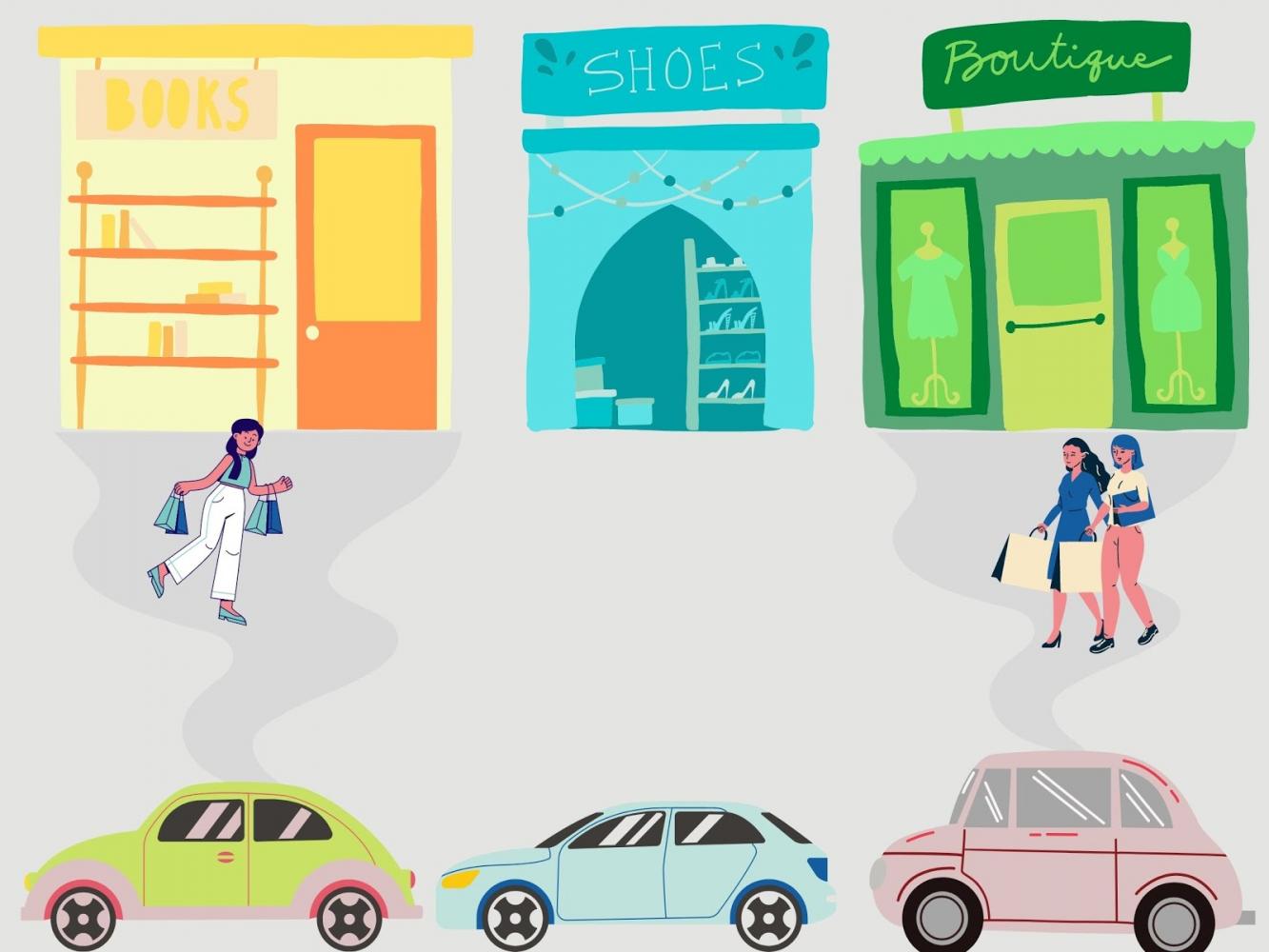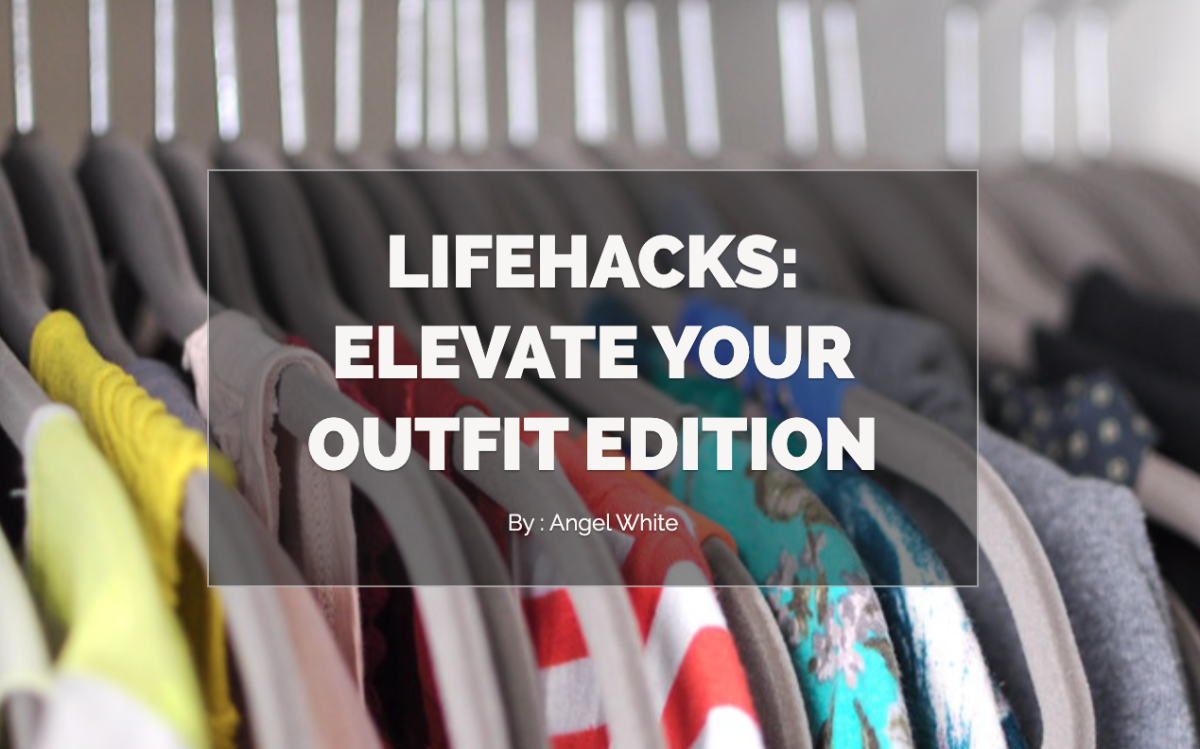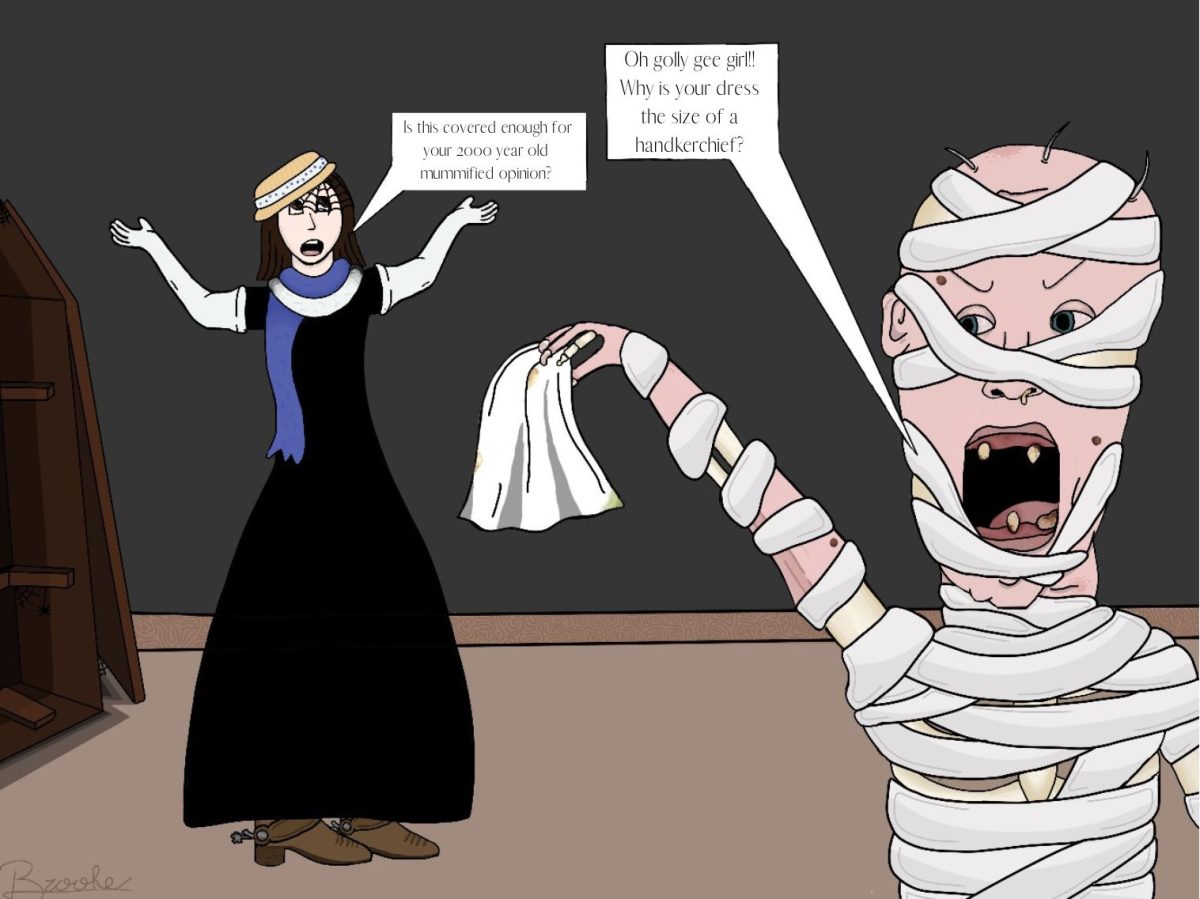One employee fills up clothing racks with streetwear pieces, including oversized race car t-shirts and cargo pants, while another worker hangs up more cottage-style pieces such as pleated skirts and flowy tops.
Fast fashion brands, like Forever 21, cater to a universal audience. This then produces a need to create more styles every season. But, this also means throwing out thousands of pounds of clothing every season when it’s no longer “in trend” and in turn, the stacks of fabric end up in landfills. In fact, the U.S. alone sends about 21 billion pounds of textile waste, including completed clothing, footwear, towels and bedding to landfills yearly.
The clothing industry itself is the second largest polluter in the world. As if there wasn’t enough air pollution from cars and dust, fast-fashion products just add to the growing list of pollutants.
As someone who occasionally likes to hop onto trends, I’ve definitely caught myself giving away or reselling pieces that I haven’t worn in a couple of months. However, not everyone can easily give away clothes that are not “trending” anymore due to their financial situations. For many, purchasing fast fashion is the most cost-efficient, as well as accessible, since stores like Zara, H&M and Abercrombie & Fitch are located in almost every mall. But, there are other options, both in-store and online, that are more worth it in the long run.
Another factor that buyers should be aware of is that when purchasing fast fashion, you are also supporting sweatshops. Sweatshop workers endure hard labor while making below minimum wage at about four to seven dollars per hour. A basic human right is the right to fair wage, and not only are sweatshops in violation of that, but also safety regulations.
The Occupational Safety and Health Act of 1970 (OSH Act) states that the law requires employers to provide their employees with working conditions that are free of known dangers. These factory workers are constantly exposed to toxic chemicals from dyes and fabrics, which in turn, have led to skin, stomach problems and numbness of limbs. Although people may say that garment workers are privileged to have a job, the environment makes it not safe nor equitable. As for the fashion companies that don’t use sweatshops, such as Levis and Pact, they are moreover dedicated to ethical and sustainable practices that consider both its customers and planet.
The longer we support fast fashion, the less time we have to fix the long-term effects. Landfills will only continue to overflow, global warming will continue to increase and factory employees will continue to work in unsafe conditions. By focusing on its long-term effects, like the unsustainable practices of fast-fashion, we can fix this problem now before the issue becomes irreversible. Begin investing in quality, sustainable clothing. Speak out about equal pay and perform your own research regarding these topics. Fast fashion may seem convenient, but think again. What will be the results of our collective choices 5-10 years from now?


!["I will be attending Trunk or Treat [for FCCLA]" junior Crystal Li said. "We're gonna use Mr. Harbeson's car, and we will be [hosting three different activities]."](https://southwestshadow.com/wp-content/uploads/2025/10/IMG_0980-1200x900.png)










